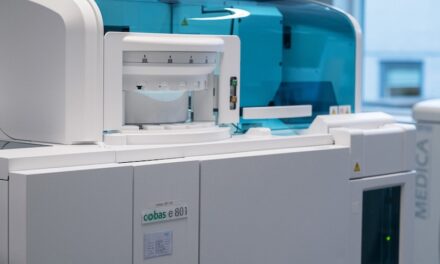 |
| Ravindranath Duggirala, PhD |
Mexican American children are experiencing substantial burdens of obesity, prediabetes, and other health problems, which historically would have been expected to develop much later in life, according to researchers at the Texas Biomedical Research Institute, San Antonio.
The findings of a new study by Texas Biomed scientists in San Antonio argue for early screening and intervention to delay or avoid chronic health problems as these children age.
Directed by Ravindranath Duggirala, PhD, Texas Biomed scientist in collaboration with scientists from UT Health Science Center at San Antonio and other institutions, the results of the study were published online in the journal Human Genetics. The research was funded primarily by the National Institute of Child Health and Human Development, a division of the National Institutes of Health (NIH).
|
The study examined 670 nondiabetic boys and girls, between the ages of 6 and 17 years, from predominantly lower-income extended Mexican American families, many of whose adult members have increased risk of diabetes. Researchers found that nearly 53% of the children were overweight or obese, and 13% had prediabetes. Overall, 19% – almost 1 in 5 – of the young people exhibited metabolic syndrome. The prevalence of metabolic syndrome rose dramatically with increasing obesity, and among 65 severely obese young people in the study, over two-thirds had already developed the condition. |
Metabolic syndrome is a cluster of early warning signs for diabetes, heart disease, and other major medical problems. These warning signs include increased accumulation of fat around the waist and in the blood, as well as elevated blood pressure and blood sugar, and high insulin levels. An estimated 2.5 million adolescents in the United States have metabolic syndrome, with minority groups such as Mexican Americans being particularly vulnerable.
The young study participants were all enrolled in the San Antonio Family Assessment of Metabolic Risk Indicators in Youth (SAFARI) study, and went to the Texas Diabetes Institute for the clinic examinations associated with the project. Because all the children belonged to families whose adult members had previously participated in genetic studies led by Texas Biomed, the researchers were able draw upon extensive family information to identify strong evidence of heritability for the metabolic syndrome and its related traits.
The ultimate goal of SAFARI investigators’ efforts is to find better ways to prevent or delay disease.
“SAFARI data suggest that if risk-factor screening of high-risk children could be performed by age six, it could provide an opportunity for interventions which might delay or prevent their developing debilitating health conditions later in life,” says lead author Sharon Fowler, MPH, of the Health Science Center.
Duggirala and other SAFARI investigators are currently conducting further genetic testing to determine which specific genes directly influence disease-related risk factors in these children. Their long-term goal is to develop family-based lifestyle interventions for SAFARI participants who are at greatest risk, in an effort to prevent the development of future serious health problems in these young people.
[removed]Click here[/removed] to read more.
Texas Biomed, formerly the Southwest Foundation for Biomedical Research, is an independent biomedical research institution.
[Source: Texas Biomedical Research Institute]




